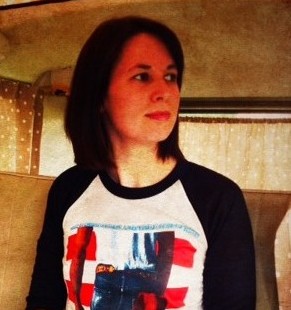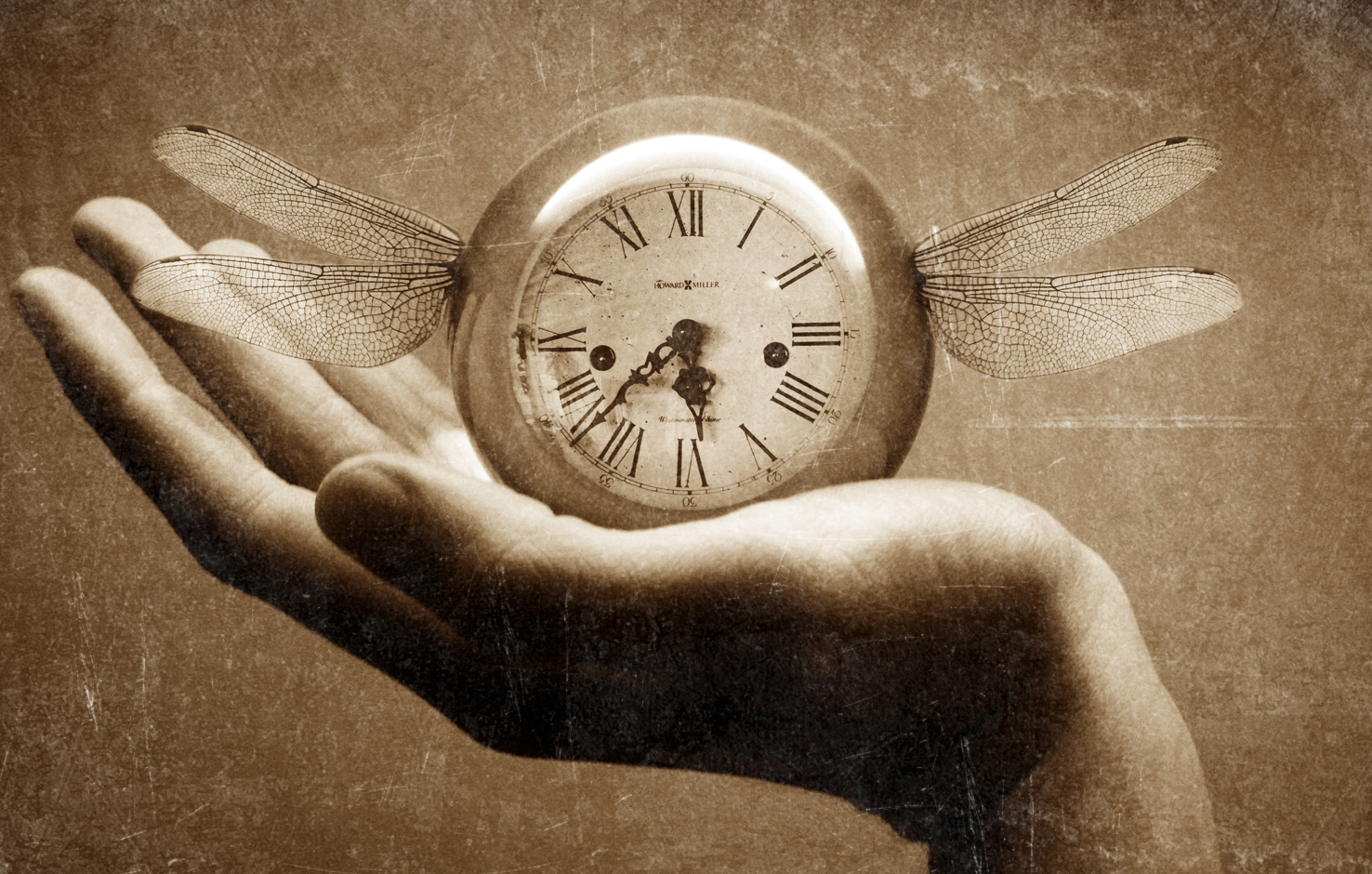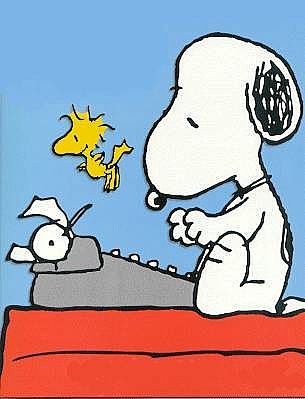 Claire Warden is Senior Lecturer in Drama at the University of Lincoln, UK. Her research focuses on modernist performance and culture. She is the author of British Avant-Garde Theatre (Palgrave Macmillan, 2012), Modernist and Avant-Garde Performance: An Introduction (EUP, 2014) and Migratory Modernist Performance: British Theatrical Travels through Russia (Palgrave Macmillan, 2015). She is also passionate about travel, fitness, rock music and professional wrestling. Further information on Claire and her work can be found at www.clairewarden.net, and she tweets @cs_warden.
Claire Warden is Senior Lecturer in Drama at the University of Lincoln, UK. Her research focuses on modernist performance and culture. She is the author of British Avant-Garde Theatre (Palgrave Macmillan, 2012), Modernist and Avant-Garde Performance: An Introduction (EUP, 2014) and Migratory Modernist Performance: British Theatrical Travels through Russia (Palgrave Macmillan, 2015). She is also passionate about travel, fitness, rock music and professional wrestling. Further information on Claire and her work can be found at www.clairewarden.net, and she tweets @cs_warden.
 In May 2012 I received a phone call from my father-in-law who, due to the unfathomable – and slightly terrifying – efficiency of Amazon had been sent the first commercial copy. I waited another week until a bright yellow book arrived on my doorstep. My book. My first book. Cue a range of mixed emotions: relief that I had finally achieved published author status, excitement that it was indeed bright yellow, thankfulness to all who had helped me along the way and frequent waves of anxiety that I had spelt a name incorrectly or misquoted or got a date wrong or made unforgivable scholarly errors that would see me laughed out of the Modernist Studies Association. The road to that point had been long, windy, largely enjoyable, sometimes painful and, I hope, full of little lessons that might be of interest to you if you are also writing a book (or aiming to). There are the obvious recommendations which apply to all large projects: good, clear note-taking, organising citations, drinking lots of tea etc. But I won’t go into these here.
In May 2012 I received a phone call from my father-in-law who, due to the unfathomable – and slightly terrifying – efficiency of Amazon had been sent the first commercial copy. I waited another week until a bright yellow book arrived on my doorstep. My book. My first book. Cue a range of mixed emotions: relief that I had finally achieved published author status, excitement that it was indeed bright yellow, thankfulness to all who had helped me along the way and frequent waves of anxiety that I had spelt a name incorrectly or misquoted or got a date wrong or made unforgivable scholarly errors that would see me laughed out of the Modernist Studies Association. The road to that point had been long, windy, largely enjoyable, sometimes painful and, I hope, full of little lessons that might be of interest to you if you are also writing a book (or aiming to). There are the obvious recommendations which apply to all large projects: good, clear note-taking, organising citations, drinking lots of tea etc. But I won’t go into these here.
 Rather I want to focus on a few points that are particularly specific to completing a book. Firstly, I’d recommend setting aside a significant bulk of free time when you start writing. I was extremely fortunate to enjoy a three-month fellowship at the Institute for Advanced Studies in the Humanities where I not only had a block of time to devote to writing but I was also surrounded by scholars of international excellence and enjoyed an office next to the Edinburgh Meadows where I could walk each day. If you are now screaming at your computer screen, ‘Does Claire not realise all the pressures in my world? Privileged time? Chance would be a fine thing!’ then I sincerely empathise. But even if you can only carve out a week locked away in your house enjoying Skype chats with inspirational colleagues then it will certainly be better than nothing. Such ‘empty’ time gives space for active thinking, something we often neglect in the daily rounds of marking and meetings.
Rather I want to focus on a few points that are particularly specific to completing a book. Firstly, I’d recommend setting aside a significant bulk of free time when you start writing. I was extremely fortunate to enjoy a three-month fellowship at the Institute for Advanced Studies in the Humanities where I not only had a block of time to devote to writing but I was also surrounded by scholars of international excellence and enjoyed an office next to the Edinburgh Meadows where I could walk each day. If you are now screaming at your computer screen, ‘Does Claire not realise all the pressures in my world? Privileged time? Chance would be a fine thing!’ then I sincerely empathise. But even if you can only carve out a week locked away in your house enjoying Skype chats with inspirational colleagues then it will certainly be better than nothing. Such ‘empty’ time gives space for active thinking, something we often neglect in the daily rounds of marking and meetings.
![]() In a sense my next piece of advice runs contrary to this one. I was fortunate to get a full-time lectureship in January 2010, halfway through this book project. Suddenly I was thrust into full university life with a teaching load, students to look after, assessments to complete and weekly meetings to attend. Add this to the steady round of conference papers and journal articles, and my daily life was far from contemplative and scholarly. At this point I realised that the book could potentially stall, writing crammed into summer vacation, and single weekly research days. So, I took to purposely setting aside time for writing, sacred time that other things would not encroach on. I was as strict as I could be about this and found that both my teaching and research benefited from this balance.
In a sense my next piece of advice runs contrary to this one. I was fortunate to get a full-time lectureship in January 2010, halfway through this book project. Suddenly I was thrust into full university life with a teaching load, students to look after, assessments to complete and weekly meetings to attend. Add this to the steady round of conference papers and journal articles, and my daily life was far from contemplative and scholarly. At this point I realised that the book could potentially stall, writing crammed into summer vacation, and single weekly research days. So, I took to purposely setting aside time for writing, sacred time that other things would not encroach on. I was as strict as I could be about this and found that both my teaching and research benefited from this balance.
One of the most important and exciting lessons I learnt through this process was that writing a book is very different from writing a PhD. As a frustrated novelist at heart, I thoroughly enjoyed the creative freedom of the book, allowing me to write in a far more fluid, engaging style. Of course, you have to clearly cite and justify ideas, but there is more room for paragraphs of admittedly speculative discussion and you don’t have to constantly insert yourself into other people’s arguments.
 We now get into the administrative nitty-gritty of book writing. This is by far my least favourite part. After many mistakes with this over the years I recommend attacking the admin (the publisher’s many forms and the copyright permissions) early on in the process. I have twice made the error of leaving all this until the last minute causing panicked emails back and forth to patient archivists, estates and artists. Next time I am going to book some days into the calendar to get this done in advance! Preparing a book is a costly business but many jobs can be done by the author at significantly cheaper rates. I produced my own index and took charge of my own publicity. While I had no experience of either of these areas (and it showed!), actually I quite enjoyed the autonomy this gave me. It is certainly worth considering publicity early on, aiming to present the work at various conferences preferably from different disciplines. My work touches on performance, modernism, English studies and interdisciplinary art so I planned to present at events that focused on these different areas, grasping (with a degree of awkwardness) in my hand a pile of promotional leaflets provided by the publisher. Social media is a perfect complement to this. I find self-promotion (for wont of a better scholarly phrase) a ‘bit yucky’ but have gradually learnt to just go for it.
We now get into the administrative nitty-gritty of book writing. This is by far my least favourite part. After many mistakes with this over the years I recommend attacking the admin (the publisher’s many forms and the copyright permissions) early on in the process. I have twice made the error of leaving all this until the last minute causing panicked emails back and forth to patient archivists, estates and artists. Next time I am going to book some days into the calendar to get this done in advance! Preparing a book is a costly business but many jobs can be done by the author at significantly cheaper rates. I produced my own index and took charge of my own publicity. While I had no experience of either of these areas (and it showed!), actually I quite enjoyed the autonomy this gave me. It is certainly worth considering publicity early on, aiming to present the work at various conferences preferably from different disciplines. My work touches on performance, modernism, English studies and interdisciplinary art so I planned to present at events that focused on these different areas, grasping (with a degree of awkwardness) in my hand a pile of promotional leaflets provided by the publisher. Social media is a perfect complement to this. I find self-promotion (for wont of a better scholarly phrase) a ‘bit yucky’ but have gradually learnt to just go for it.
My grandfather has now read the book twice through (without, by his own admission, being any clearer about what the avant-garde really is!) but he is in the minority. Getting a first book out there when you are only starting to make your name can be rather disappointing – you may well not be immediately invited to deliver a keynote at Princeton. Don’t be put off if you feel just a bit under-whelmed and deflated when the book finally hits the shelves. It is just that post-Christmas feeling of flatness rearing its ugly head. In my experience book writing combines boring qualities like tenacity, perseverance, organisation and effort, with more inscrutable things like inspiration, creativity and vision. The process is rewarding, demanding, perplexing, terrifying and joyful all at the same time. It brings out feelings of pride and doubt, where one oscillates between insecurity and self-assurance. But ultimately it is about sharing ideas, becoming part of intellectual communities and contributing to new ways of thinking. Sounds like a pretty great job to me!
